Just some guy who likes movies. Find my work at http://domnero.com
Don't wanna be here? Send us removal request.
Link
Just around the time Dora Lange was found deer-antlered and mutilated in Louisiana, the ice-faced corpse of Laura Palmer would be washing up on the rocky banks of Twin Peaks, Washington.
0 notes
Link
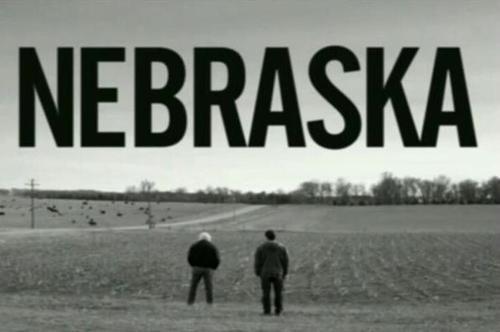
NEBRASKA AND THE PLACE FILM
by Dominick Nero
Black screen. White title credits appear, small text on unsuspecting corners of the screen. Soundtrack rolls in. The titles plink in and out, each one occupying another small expanse of screenspace, until eventually every bit of landscape...
25 notes
·
View notes
Link
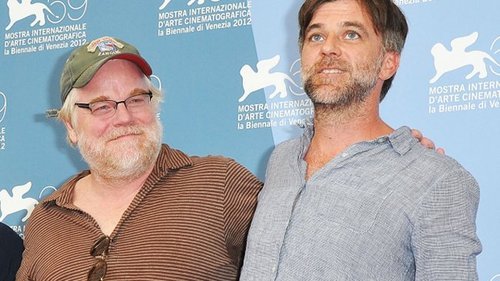
by Dominick Nero
On February 2nd, 2014, we lost a master.
Philip Seymour Hoffman graced the screen with such overwhelming complexity through his broad career, appearing in a number of legendary roles— most notably those written by fellow master, Paul Thomas Anderson.
Directors often...
37 notes
·
View notes
Text
Filminick 2013 Top 10
10. Only God Forgives / Director: Nicolas Winding Refn
Nicolas Winding Refn’s harsh rebuttal to all expectations. A budding young maverick, joined with the pop-culture hearthrob of Mr. Ryan Gosling, ONLY GOD FORGIVES could have been a slick, action-packed joyride to follow up the duo’s smash success in DRIVE. But, Refn chose instead to take a left turn, and enter the red alleyway of our Lynchian nightmares. Audiences and critics everywhere came out dissatisfied, I personally heard one theatregoer exclaim that “this is the worst movie [he’s] ever seen,” but Refn makes the list because he denied a bunch of big budget offerings, and instead of watering-down his highly nuanced style (ahem, Steve McQueen, 12 YEARS A SLAVE), the brash auteur went full force into a type of filmmaking all his own. Let’s just hope his audacity didn’t cost him a career.
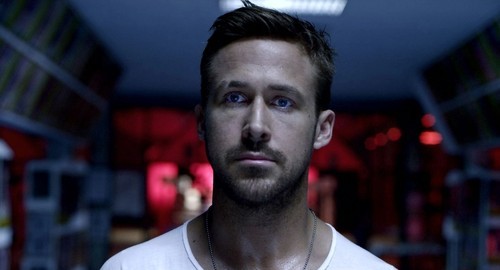
9. Gravity / Director: Alfonso Cuaron
Never has an art film captured the attention of the masses in such a gigantic way. There’s not much to the script, but Alfonso Cuaron’s efforts in creating a film that is just downright new were highly effective, in GRAVITY. Cuaron deserves major attention for wrangling a project so immense, so weird and physically faked (though it doesn’t feel so in the film), it’s a wonder that a man can conceptualize cinema like that. Finally taking the camera off of its shackles, GRAVITY feels like the first true transcendent piece of blockbuster cinema, bringing American action film to entirely new level. Also, he’s finally given merit to the 3D IMAX viewing experience-- $20 well spent.
8. All is Lost / Director: JC Chandor
Robert Redford returns to show us that we don’t need space, 3D, IMAX, or even dialogue to make an exciting film. JC Chandor’s one-man-show deserves a notch higher than Cuaron and Bullock, because while GRAVITY astounds, LOST reminds us that there is no excuse for unstimulating cinema, at any level. By harnessing the explosive silence and charisma of long-time legend Robert Redford (finally, a director honoring the old guys), Chandor’s film delivers a deeply satisfying drama in the most simple level of cinema: camera, man, conflict. While the direction in the film may not be exemplary, it’s wonderful to see what happens when you put a champion onscreen alone for 90 minutes, and let him lead us through the story he was born to tell. Now if only someone would do this sort of thing with De Niro...
7. Museum Hours / Director: Jem Cohen
Speaking about movies that break open the form, Jem Cohen’s latest gem is every bit as defamiliarizing as both the former action films-- but this one is almost devoid of even a narrative at all. Loosely based on the observations of a Vienna museum guard, MUSEUM HOURS somehow occupies the mind of an anxious, yet enthusiastic traveler, addressing the big themes: art, love, family, and what they all mean together. Cohen’s film astounds, because it sticks to its form of not having a form. If the story wants to plunge into a painting, and tell us all its legends and secrets, it does, without explanation; if it wants to pick up on a lonely traveler in Austria, it goes right ahead as well. The best way to describe this film’s significance is, in the opening, it just starts. There’s no fade in. No opening monologue, no voice-over explanation. The picture just cuts into the screen, and we’re watching it, taken by surprise, until it finishes up in the end, and we wonder if what we thought we saw really meant anything at all...
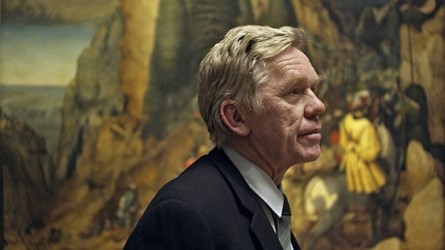
6. Before Midnight / Director: Richard Linklater
Continuing Richard Linklater’s unprecedented exploration of the relationship of Jesse and Celine, BEFORE MIDNIGHT forges forward in the genre. But just what is this genre? Surely, it’s not “romantic-comedy,” because while BEFORE SUNRISE is lighthearted enough, the ending is crushing, BEFORE SUNSET even harder to stomach, and now this one, by the end, just downright brutal. But these films don’t inject Ethan Hawke and Julie Delpys’ characters’ relationship with drama, what makes them so hard to categorize is, the relationship themselves are drama. By the end of MIDNIGHT, the line between movie drama, and real life borders on an uneasy edge, until we’re forced to consider the strange question of, if Celine and Jesse’s relationship has existed these past 27 years, if its grown and matured in real time, if they have problems that develop right alongside ours, aren’t Celine and Jesse just as real as say, you and I? Linklater bends the precipice to an alarming point with this latest entry, threatening to bust in on our reality and change the definition of realism entirely.
5. The Great Beauty / Director: Paolo Sorrentino
This film makes the list not because of any efforts to revise, or push forward, but rather to remember, and reminisce. Gaudy and garish, THE GREAT BEAUTY is like the illegitimate child of a Fellini film, that has wandered lonely through the streets of an ever-deteriorating Rome, and now fifty years later, has returned as a fully-formed piece of cinema, with it's own voice, however similar to the Italian masters of old. Jep Gambardella is this grown-up orphan of Mastroianni and Fellini, and Tony Servillo's portrayal of him, wonderfully quiet, is perhaps the strongest male performance of the year. Sorrentino is the lucky star of the Italian film scene, and, like his film, he reminds us that, although lately it's tough to find, his nation has a heritage of greatness-- great beauty-- and sometimes we just have to pay our dues.
4. Blue Jasmine / Director: Woody Allen
What’s left to be said about Woody Allen? Apparently, lots. BLUE JASMINE is not only Woody’s best film since VICKY CRISTINA BARCELONA, but it’s also his first new film in years. That breakthrough is worthy of the list enough, because the infamous curmudgeon has made so many imprints on the American film landscape, with BLUE JASMINE, he’s brought us to an entirely new place: the 21st Century. Cate Blanchett soars, just about as scathing as one can be, and her character becomes just another testament to the genius of our greatest living auteur, arguably America’s most prolific film artist. Like the other directors listed here, Woody deserves recognition for his efforts in reinvention, not only of his own filmmaking, but of the very modern comedy format that he helped create.
3. Her / Director: Spike Jonze
Like Number 4, HER is an important reminder on where we’re headed as a people. Spike Jonze’s first original entry as a writer/director, this film composes a conventional love story about an unconventional relationship. Joaquin Phoenix, firmly establishing himself as one of today’s greatest American actors, plays this role with a certain tenderness, a personality, that is not unlike the film itself-- every shot, every color, all of HER seems to be just bursting with intimacy, as if Jonze went in and painted every frame himself. We’re reaching a point in our cinema where the love story has been done, redone, subverted, revised, again and again, until there seems to be nothing left of it. Sometimes, we get a film that reclaims the excitement of a relationship in a joyously new way. BLUE IS THE WARMEST COLOR is one of these sorts of films-- but, unlike HER, BLUE is done with a forced superficiality, a big boldness, demanding that we realize what is “new”-- HER wins this spot because, while Scarlett Johannson’s Operating System is in fact a superficial gimmick, Spike Jonze chooses to portray this gimmick in such a loving, personal way. Cinema doesn’t need to make bold proclamations, sometimes it can just be a sad love story and that’s enough.
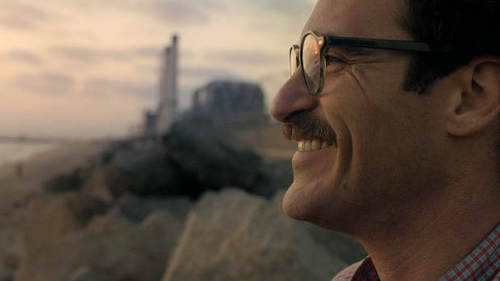
2. To the Wonder / Director: Terrence Malick
Severely overlooked this year, TO THE WONDER is yet another achievement by elusive master Terrence Malick. If HER is filled with intimacy and personality, TO THE WONDER is boiling, downright overflowing with directorial duty. Malick’s films are characteristically spiritual, but this one really takes flight. In a film so transcendent, language is even thrown by the wayside, as the actors talk in their native tongues, all of them communicating on a grand, hyper-human level. It’s like Malick has the key to the 6th sense, that of sympathy, and he can choose to glide in and out the world of wordless feelings whenever he pleases. Whereas his recent THE TREE OF LIFE researches the basis for man, TO THE WONDER expands on our best quality: love. Apparently, Malick can handle modern day tales just as well as explorations of the beginning of time.
1. Inside Llewyn Davis / Director: Joel and Ethan Coen
It’s hard to find a fault with INSIDE LLEWYN DAVIS. One could argue that it doesn’t push the medium forward, like GRAVITY or ALL IS LOST. There’s nothing terribly heartbreaking about it, no BEFORE MIDNIGHT heartbreak, there’s no MUSEUM HOURS reinvention, and the Coen Bros don’t implement any groundbreaking BLUE JASMINE contemporary comments or HER/ONLY GOD FORGIVES directorial revelations. One could say that describe the film is even bland-- on the surface, it’s just about a lackadaisical folk singer tramping his way through Manhattan, relatively unsuccessful. But Lars Von Trier says a film should be like a pebble stuck in your shoe. Every other film in this list, in addition to countless other great movies from this year, do something important for us. These films are necessary, they each say something essential. But, LLEWYN DAVIS is stuck in my shoe. Like the scene in which Llewyn plays “Queen Jane” to a quiet, dismissing manager, the Coen Bros’ latest is so subtle, it exercises such overwhelming restraint, that at times it feels like the projection screen itself is about to tear open and explode with a lustful fervor. INSIDE LLEWYN DAVIS picks, picks, picks away at you, it gets right in between your toes, it sticks with you all day long, and when you wake up in the morning, it’s still there, as if to say, “hang me, oh hang me, I’ll be dead and gone / wouldn’t mind the hanging, but the laying in the ground so long, poor boy…” The film is incessant. It's a masterpiece.
The industry’s changing and films are changing with it. Cinema persists, and if 2013 showed us anything, it’s that, regardless of all the complaints swirling around the dying support from studios, the loss of interest in independent film-- there will always be great movies, for those of us who want to seek them out. Films that deserve recognition but didn’t make this list, are, in order of merit, COMPUTER CHESS, AMERICAN HUSTLE, and TWELVE YEARS A SLAVE.
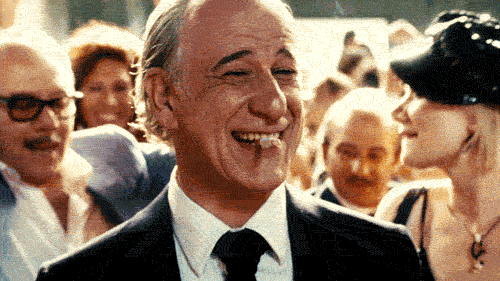
#film#cinema#movies#top ten#the great beauty#museum hours#ryan gosling#only god forgives#her#spike jonze#joaquin phoenix#blue jasmine#to the wonder#terrence malick#coen bros#inside llewyn davis#jem cohen#woody allen#before midnight#richard linklater#julie delpy#ethan hawke#gravity#sandra bullock#alfonso cuaron#Nicolas Winding Refn#2013#12 years a slave#american hustle#computer chess
5 notes
·
View notes
Video
vimeo
My latest written/directed piece, a little meditation on the burden of God and spirituality. http://magnaluxpictures.com
#film#dslr#50mm#minolta#vintage#cinema#church#god#religion#catholicism#new york#nyc#auteur#sleep#frankie valli#movies#video#short film#short cinema
0 notes
Text
12 Years a Slave (2013)
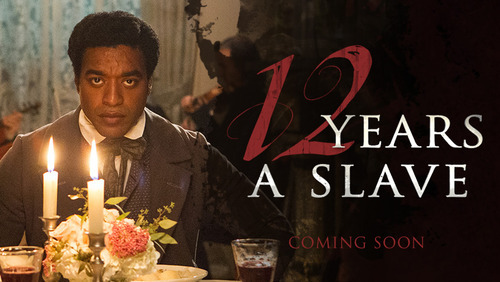
12 Years a Slave / Director: Steve McQueen
Inscribed in blood from the dark days of America's history, 12 YEARS A SLAVE is biblical in magnitude. Steeped in suffering and torture, this is not a film for the casual moviegoer-- but, in many ways, McQueen has composed it as so.
Compared to the young director's past two films, this is quite a conventional piece. Featuring a Hollywood Hans Zimmer soundtrack, heavy script with lots of flourishes, and even a gimmicky title card, it's hard to tell if McQueen has sold out here. Perhaps this is just the director's voice woven through a more accessible narrative, but either way, this is could be the hot auteur's first step toward mediocrity.
It is an emotional freight train of a movie, the sort that knocks you flat on your face, keeps your head hung low for the rest of the night. Sticking true to his proclivity for unadulterated violence and agony, McQueen has composed a few sequences so painful, so brutally unwavering, that we truly descend into that marshy nightmarish world, standing there right under the whip with Solomon Northup. Each of the big-name players deliver-- Cumberbatch, Dano, Giamatti, Fassbender, Pitt-- few directors could round up names that huge and get them to deliver. Chiwetel Ejiofor, the titular player, is sure to grip the Academy, especially after their snub of SHAME.
I can't help wondering if this entire film is somewhat centered around that Oscar determination, that this is somehow McQueen's response-- intentional or not-- to his lack of attention from the Academy. Leagues below HUNGER in terms of filmic ingenuity, we are seldom given anything unordinary-- long takes are rare, the structure, though non-linear, is not altogether unexpected-- it's easy to be fooled by the magnificent performances and terrifying context, but this is by no means a great passion play.
12 YEARS A SLAVE is a treacherous film. It's gripping. It will have you in tears by the finale. High School teachers will be showing it to their history classes for years to come. But is that the right direction for this young hope of the cinema? Is this Steve McQueen's true voice, or is it just him singing to the Academy?
Filminick: ★ ★ ★ ★ ☆
#12 Years a Slave#Steve McQueen#Michael Fassbender#brad pitt#benedict cumberbatch#paul dano#paul giamatti#film#cinema#reviews#movies
2 notes
·
View notes
Text
GRAVITY (2013)
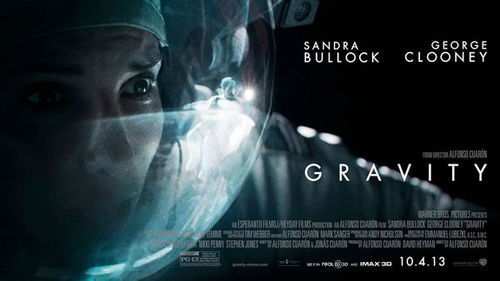
Gravity / Director: Alfonso Cuarón
Alfonso Cuarón's GRAVITY is a rebirth.
Finally, we have a film that justifies our new "gimmicks," a film that gives merit to the IMAX format, to the much-hated 3D-- Cuarón shows us that with a forward-thinking auteur, this new technology can produce raw, unbridled cinema.
The film camera has been loosened from its shackles. It seems that as Sandra Bullock's Ryan breaks free of her spacesuit confinements, the ever-stabile camera, always in some way strapped to the ground, has been tossed gently into free-space, finally free to move on its own. Cuts don't seem to occur, and if they do, they're elegant, masterfully disguised-- but not in a way that promotes the dirty reality TV handheld formula. No, Cuarón's camera is flowing, like a smoothly flocking bird, seeing all, yet staying hidden in the skies, never intruding on our perspectives, never telling us what to look at.
What's most surprising is that while this is perhaps the most progressively composed major film of our time, it actually sticks quite close to an old tradition-- GRAVITY is all about choreography, like an old John Ford western, where the director's main intention is in creating the scene, not recomposing it in the editing room.
And somewhere in Cuarón's heart resides the spirit of Carl Theodor Dreyer, another visage of the past. Bullock, full of anguish, just bursting with intensity, takes a hold of this film and guides us through like no one-woman show has done since THE PASSION OF JOAN OF ARC. These films seem to be spiritual sisters, they share an air of cinematic freedom, both formally and narratively, breaking free from the shackles of convention and showcasing a grand test of will. It comes as no surprise that Bullock's character is hardened, with sometimes boyish inflections, a "man's name"-- JOAN OF ARC flew in the face of gender norms as well.
What separates this film from a purely technical masterpiece is Cuarón's dedication to enriching themes. From lifting away from the past, to rising out of spacestations, Bullock's heroine is a star-bound baby (perhaps a reference to the spectacle ending of 2001), so much that we get a full-on utero image, as she floats in the center of window, astronaut umbilical cords emerging from her waist, her body contorted like an ultra sound.
And the rebirth just goes farther and farther-- for as she battles to be re-introduced to earth, Cuarón persists to redetermine cinematic methodology, and we, as viewers, are reborn into a new age of cinema, finally entering the era of IMAX artistry.
Filminick: ★ ★ ★ ★ ★
#film#cinema#joan of arc#dreyer#movies#gravity#alfonso cuaron#george clooney#sandra bullock#space#stars
2 notes
·
View notes
Video
vimeo
A short film about New York City and everything terrible about it. MANHATTAN, JE TE DETESTE.
1 note
·
View note
Text
Blue Jasmine (2013)
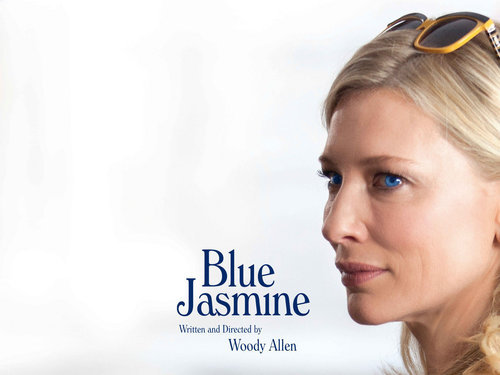
Blue Jasmine / Director: Woody Allen
Woody Allen's latest is a massive, demanding drama, pulling no punches, sidestepping his characteristic set-up/punchline goofiness in favor of a dark, almost merciless social commentary. Cate Blanchett is astoundingly wretched but pitiful, and I can't quite remember a film this important in the legendary director's recent oeuvre, or perhaps even on the American cinema screen, in the past 10 years (the most recent probably being Fincher's THE SOCIAL NETWORK).
"You can only go through so much trauma until you end up screaming on the street," says the horrible Jasmine, a sort of protagonist that, in any other film, would be the central nemesis. She's petty, she lies, she's overwhelmingly ugly at times-- yet by the finale, you might go along crying with her. This is the sort of film that leaves your heart aching, the lump in your back pocket or weight in your purse feeling unmerited, evil even-- it's as if Woody is saying to us all, "are we worthy of what we have?"
This is the 1%, this is the film for the post-Madoff, post-Enron era, a world in which the rich are being thrust into the poor, dualing social classes now have an Andrew Dice Clay-sized gap between them. As always, the performances are rich and human, Bobby Canavale and Sally Hawkins just exude earthy familiarity onscreen, and later in the film, Louis C.K. is a charm. The obvious heir to the neurotic, heartfelt throne, seeing Louie in a Woody is the nail on the coffin that he's the aging comedian/director's successor.
Allen's storytelling has never been known for its structural complexity. For a director with such linear, and character-based films, to make something as flashback-centric and interior as BLUE JASMINE is enormously meritable. He's surely dabbled in such roundabout antics before (see STARDUST MEMORIES, or ANNIE HALL), but for the old comic to just go and travel down Jasmine's Xanax and Stoli-infused regressions whenever he pleases is quite a statement.
As masterful as the film was, the most fascinating part of the screening experience was the audience. I caught the showing at the fairly-upscale Lincoln Plaza cinemas, a place that seems to be a great date night for old rich men and their young beautiful girlfriends. As the film descended into a scathing glare at the bourgeoise lifestyle, the gray-haired "psuedo-intellectuals" around me continued to laugh, usually at the wrong moments, sympathizing with Jasmine and her high-class woes! They'd laugh at the worst moments, such as when Louie's good-guy Al character presents a cheap stereo with enthusiasm-- this was a very modest and warm part of the film.
What's happened here? I sat there, alone among this sea of aristocrats, each one of them donning the same sort of jewelry-encrusted purses, slick high heels and crisp leisure suits that Jasmine adorns, each one missing the point of the whole lampoon.
Have Woody's films centered upon the very demographic that he has so outwardly bashed, since he started directing, more than 40 years ago?
The might be the funniest joke of them all...
Filminick: ★ ★ ★ ★ ★
0 notes
Text
Only God Forgives (2013)
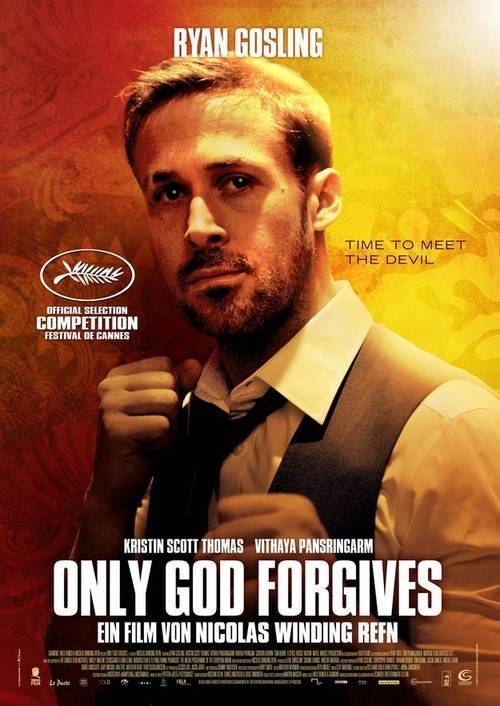
Only God Forgives / Director: Nicholas Winding Refn
Ryan Gosling has finally achieved Christ status. But not in the way you might like.
Refn and Gosling's second team-up picture feels overwhelmingly biblical, with an incessant Jesus symbolism wreaking in from all camera angles. Gosling's Julian is constantly framed with a crucifix behind him, the film is hellishly red almost always, and just as the hero represents the namesake's all-forgiving God, the villainous Chang is definitely the devil, and Kristin Scott Thomas may as well be Mother Mary. Or perhaps Mary Magdalene, since she is anything but virginal. So here we have what could have been a stylized, techno-re-telling of the last days of Christ.
But that's not what you really come out feeling like, in Refn's tenth feature.
ONLY GOD FORGIVES is, if anything, a fine piece of deconstructionist filmmaking. On the surface, we see the physical deconstruction of Gosling's famous quiet-but-deadly hero character. He is quite literally brutalized to a pulp onscreen, and in the boss battle towards the end (you'll call it that too when you see it), we see the pulverizing of a face that has been so cherished and worshipped by filmmakers and internet memes alike. But Refn's deconstruction goes far deeper than that, as he removes almost every chance of dialogue from the character, every ounce of warmth, and all the things we found cute and likable about him in DRIVE. If The Driver was a tormented hero, then Julian is just the tormented part.
Refn, who claimed that he was hoping to make a "true action film," also deconstructs the revenge thriller to a truly depraved extent. Whereas we'd normally see the path of the vengeful hero followed through to the eventual murder of the villain (even in Refn's own DRIVE this way the case), ONLY GOD FORGIVES merely presents us with a set of obstacles that are twisted, contorted, and unresolved. There's no UNFORGIVEN-style catharsis, instead we merely find Gosling with a head swollen like a watermelon, standing above his bloodied mother with a razor-sharp sword. Refn, to further deconstruct the genre, paints his main villain as a balding karaoke enthusiast, forcing his underlings, and us, to watch him sing Thai pop songs frequently. Of course Chang is altogether sinister, but his stout, round-faced shadow is even weirder than Refn's last middle-aged villain, Mr. Albert Brooks.
Somewhere between Kubrick's THE SHINING and a David Lynch fever-dream, ONLY GOD FORGIVES is an exquisite piece of cinema porn. It's hedonistic, with enormously rich colors, super long takes, wide shots that are so well-composed they're borderline impressionistic, and sounds so crisp, we can feel the blades tearing through our own necks.
When we might have expected Julian to die for our sins, in the end, Refn instead presents us with just a disturbing festishized dead-end. It's ejaculatory, it's explosive, but it's not any sort of crucifixion you might be looking forward to-- just as we are getting a handle on the film, Refn goes ahead and deconstructs it as we're watching it.
Filminick: ★ ★ ★ ★ ☆
2 notes
·
View notes
Video
I don't know what an artist is, but that's what I want to be. http://domnero.com/summer
0 notes
Text
Pacific Rim (2013)
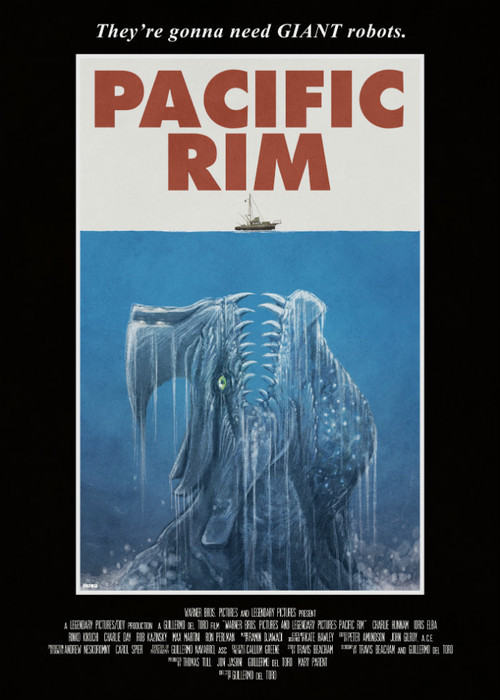
Pacific Rim / Director: Guillermo Del Toro
There's something living inside Mr. Del Toro's robo-passion-project, something very precious and fascinating, yet shrouded in an obsessive hokeyness. It reveals itself sporadically throughout the film, in very small glimmers, tiny enough that the casual viewer will surely overlook it.
Early in the film, we see a slam-bang origin story of the colossal fighters and their monstrous opponents. Del Toro sidesteps conventional drawn-out introductions, and tells us plainly, "Fuck the monsters, we can punch them back to hell." This sentiment has been asserted and reasserted throughout science fiction blockbusters since the dawn of cinema. No doubt, Del Toro is paying homage to this sort of humanist filmmaking-- and that'd be fine-- but what lies within PACIFIC RIM is something much more interesting.
Look to the film's tagline: "To Fight Monsters, We Created Monsters." Again and again, we are reminded that the humans chose to build nuts-and-bolts equivalents of their alien awebringers, and while we could have made bombs to destroy them, or big vaporizers or something, we instead created mirrors of them. The humans made monsters too.
On the surface, PACIFIC RIM is a film about mirrors, about duality. Our world becomes joined with the world of the Kaiju, just as humans must join together to overcome them. As Charlie Day, in a brilliant and naturally hilarious role explains, the Kaiju have two brains, and can only operate through a network of interconnected minds. The Jaegers, too, controlled by two pilots, can only fight when the minds are connected, and on a very deep and personal level.
We follow a group of rag-tag robot pilots, led by the steadied power of Idris Elba, as they wander through their altogether cliched blockbuster conflicts. Our lousy protagonist, Charlie Hunman's Raleigh, has lost his other half-- his older brother-- and is on a search for another partner. His love-interest, another great example of laughable American stereotyping of Asian women (how obedient! and she knows karate?!) Mako Mori, shares this similar remorse for her family, and thus they are able to join minds together.
The film, like most blockbusters these days, is a visual symphony, full of CGI wonders like you've never seen. Del Toro tempers the computer graphics with a good amount of practical effects, which creates a fine balance-- but sadly his shooting style conforms to the ever-growing school of handheld clusterfuck filmmaking (see MAN OF STEEL). The big fights are great, but unfortunately, Del Toro's intrusive camera takes away from the choreography. What's the point of all the computer graphics if we can't even see what's going on?
Sure, the film plays out quite predictably, and maybe that's alright, it is reminiscent of those sort of Saturday morning cartoons, after all. The dialogue made my theatre's audience laugh quite a bit, and the aforementioned hokeyness is really problematic at times.
But, in the finale (SPOILERS AHEAD), when Raleigh finally descends into the other realm, the deeper notion of Del Toro's film finally creeps out. We see the alien race, in their world, small humanoids operating machines much like Elba and our team back home. Raleigh's Jaeger floats toward them, and in a deft masterstroke, Del Toro shows one of the humanoids turn its weird head toward the big horrible robot, uncover its alien skin, and show us a cowering look of fear. Of shock. Of terror for its world. The same look we've been seeing from the humans throughout the film.
We sent a monster into their world. And in this fight between worlds, we blew their's to pieces, as Raleigh's Jaeger explodes in an enormous atom bomb of sorts-- destroying these little humanoids and everything they know.
Perhaps there's some leftover WWII animosity brewing here from the Pacific front?
Either way, to fight monsters, we created monsters. And we won. Who's the bad guy here?
Filminick: ★ ★ ★ ☆ ☆
2 notes
·
View notes
Video
vimeo
Noon, that time when the sun is way too bright. As seen from a bug's peril.
0 notes
Video
vimeo
The second installment of my "Scenes from a Summer" series. Call it minicinema; I'm out to capture the fleeting sensations of these summer days.
1 note
·
View note
Video
vimeo
To Sleep
A short film for the dreamers among us.
#Vimeo#sleep#domnero#film#short#experimental#short films#films#Dominick Nero#Art#DSLR#Canon 60d#Catholicism#Religion#Christianity
0 notes
Text
SHORT FILMS: Failure (2013)

Failure / Director: Michael Cera
Like a young Woody Allen or Albert Brooks, Michael Cera continues to assert his artistic maturity, in this latest JASH short film. Whereas Tim Heidecker or Sarah Silverman uses the JASH Youtube Channel to broadcast lightly-planned, or otherwise jokingly absurdist web bits, Cera has utilized this new online platform for his turn as a burgeoning auteur.
FAILURE, much like his past pieces, BRAZZAVILLE TEENAGER and GREGORY GO BOOM, is written, directed, and acted by Cera, fully saturating the frame with his woeful, and sometimes demented integrity. Aubrey Plaza makes a sweet cameo in this film, which seems to encompass that similar feeling of "I have no idea what's going on...but I know exactly what's going on."
Each film has a defined aesthetic, the mise-en-scene is consistently hot and dense, dreamlike close-ups abound, somehow reflecting this young artist, who is developing his trademark awkwardness to an overall disquieting social nausea.
Some might say that Cera is one of those one trick actors, playing the same role since his early work in ARRESTED DEVELOPMENT, and they'd be right, but go back and look at the oeuvre of Mr. Allen, Mr, Brooks, Charlie Chaplin, Buster Keaton, Georges Melies, Italy's Nanni Moretti, or most recently, our own Louis C.K., etc, etc-- Michael Cera may very well become the next entry into the longstanding tradition of one-man-cinema-bands, an onscreen persona that is already hard-earned and defined, if not legendary.
#Michael Cera#Jash#Youtube#Failure#Tim Heide#sarah silverman#Film#Cinema#Short Film#eric wareheim#woody allen
0 notes
Note
Please, get over Christopher Reeve as Superman. Yes he was first and he was amazing, but that era is gone. Yes we saw Superman pushed to the very edge and he was forced to kill Zod, but you saw him in utter despair, he suffered for it. It wasn't lightly done. He kills Zod in the Supergirl saga as well. Were you as disheartened when it happened in the comic?
Look closer at my words. I'm not forcing my nostalgia on anyone, not condemning Snyder for his choices, or Goyer and Nolan for their take on the character. Every film is informed by its time period, and I'm simply looking at how we think of Superman today-- full of morbidity and fear-- in contrast to how we thought of him, say, 30 years ago.
0 notes